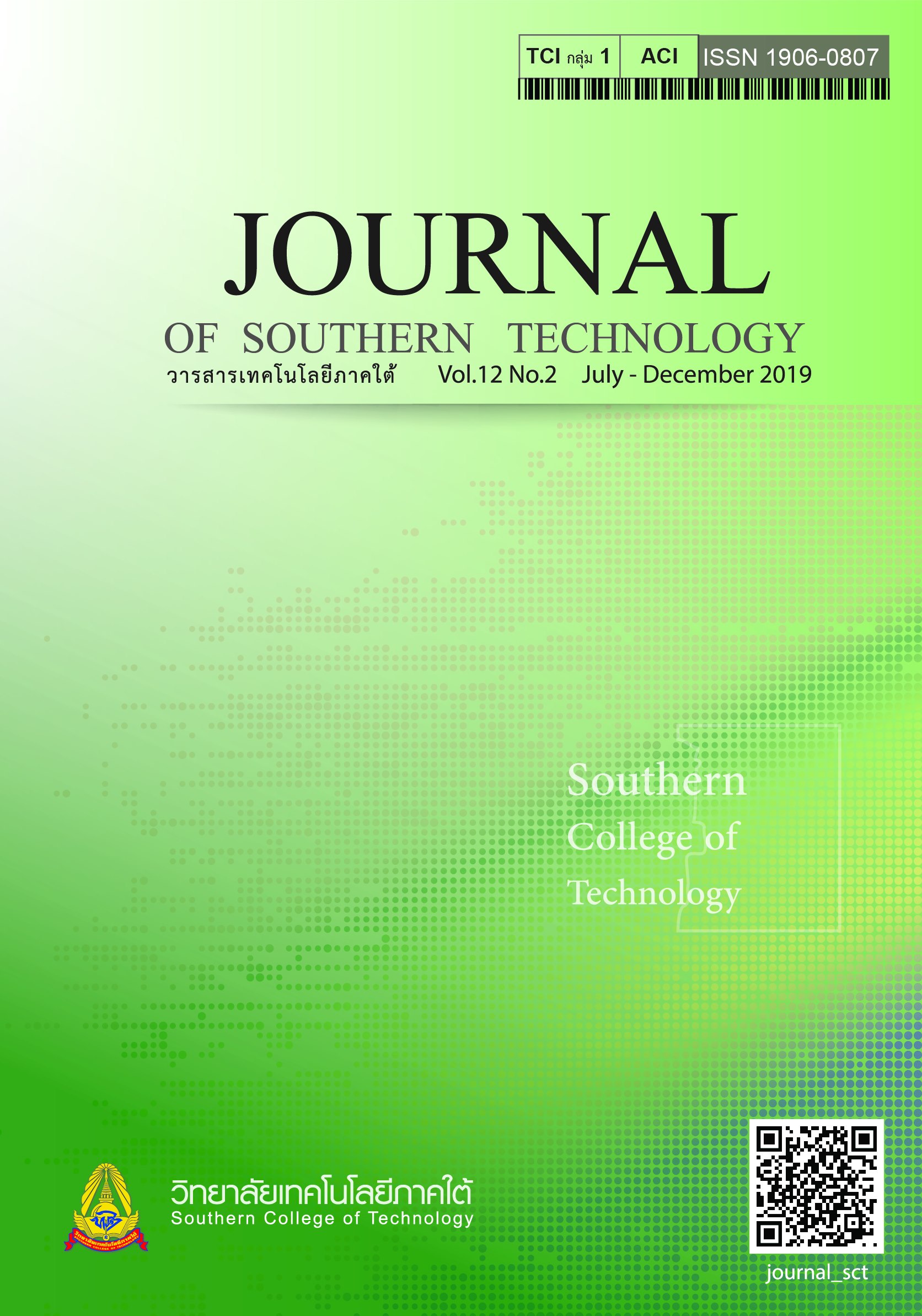Development of Computer Game for Learning Herbal Plants: Herb Learning Center at Khunthale Community, Surat Thani Province
Main Article Content
Abstract
The research aims to develop a 3D computer game for learning Thai herbal plants from the Herbal The research aims to develop a 3D computer game for learning Thai herbal plants from the Herbal Plant Learning Center in Khuntalae Community, Surat Thani Province. Using purposive sampling, 28 students majoring in Information Technology Business, Faculty of Liberal Arts and Management Sciences, Prince of Songkla University were the subjects of this study. The research instruments include 1) 3D computer game for learning Thai herbal plants, 2) the pre- and post-test and 3) the satisfaction questionnaire. The statistics used in the research were means and standard deviation. The results include 1) the 3D computer game called “Mission Herb Wonderland” which is created using game mechanisms in designing and organizing which includes score points, levels and challenges. The design focused on learning stimulation, motivation, desire and, of course, enjoyment. 2) The overall satisfaction of the student was at a “good’ level ( =3.98, S.D. = 0.12). The satisfaction towards “content” was at a “good” level (
=4.23, S.D. =0.71), the satisfaction towards “interaction” was at a “good” level (
= 3.86, S.D. = 0.87), the satisfaction towards “format and presentation” was at a “good” level (
= 4.06, S.D. = 0.82), and the satisfaction towards “language used in communication” was at a “good” level (
= 4.25, S.D. = 0.79). 3) There was an effect of the 3D game on the students learning as the post-test score is higher than pre-test score at a significant level .05.
Article Details
-
Authors must agree to the journal publication rules and allow the editors to edit the manuscripts for publication.
-
Author’s right belongs to the author but Journal of Southern Technology holds the right of first publication and thus allow readers to use the article for the purpose of education but not commercial.
References
Binbai, S., & Tanamai, S. (2014). Computer games with learning in digital age. Technical Education Journal King Mongkut’s University of Technology North Bangkok, 5(1), 177-181. [in Thai]
Bunrattanakornkit, L. (1998). Thai Herbs Used: Book no.1. Bangkok: The Herbal Society of Thailand. [in Thai]
Chaikong, K., Thongtape, K., Khadedaiwang, P., Laksanajan, P., & Kao–Ean, W. (2014). Design Application of Herbs Learning Center Khunthale Community Case Study (Seminar Report). Surat Thani: Prince of Songkla University. [in Thai]
Dechdamrong, N. (2006). Multimedia Technology. (Handout). Phetchaburi: Faculty of Information Technology, Phetchaburi Rajabhat University. [in Thai]
Department of Thai Traditional and Alternative Medicine. (2016). Documents for National Master Plan for Thai Herbs and Opening Ceremony. Retrieved March 29, 2018, from https://www.dtam.moph.go.th/images/ download/dl0018-28102559-003 _Herbal_city.pdf [in Thai]
Ebner, M., & Holzinger, A. (2007). Successful implementation of user-centered game based learning in higher education: an example from civil engineering. Computers & Education, 49(3), 873–890.
Ke, F. (2016). Designing and integrating purposeful learning in game play: a systematic review. Educational Technology Research and Development, 64(2), 219-244.
Kirkland, K. (2010). Games-Based Learning Experiences: Workshop Report. Bristol: Futurelab.
Ithiamnuaypan, I. (2010). Computer Game to Support Learning Thai Herbs. M.S. Thesis (Educational Technology), Computer Technology for Education, Phetchaburi Rajabhat University. [in Thai]
Lakaphun, T., & Sarawanawong, J. (2015). Knowledge management of herb: a case study of bandongbang herbal group at Tambon Dongkeerek, Mueang District, Prachinburi Province. Journal of Library and Information Science SWU, 8(1), 12-25. [in Thai]
Luanaigh, P. (2006). Game Design Complete. Arizona: Paraglyph Press.
Nackros, K. (2001). Game-based Instruction within IT Security Education. Ph.D. Thesis (Department of Computer and Systems Sciences, Stockholm University & RoyalInstitute of Technology), Sweden.
Office of the Permanent Secretary of MOPH. (2014). Health fact sheet. Health Topics, 7(17), 1-2.
Papastergiou, M. (2009). Digital game-based learning in high school computer science education: Impact on educational effectiveness and student motivation. Computers & Education, 52(1), 1-12.
Plass, J. L., Homer, B. D., & Kinzer, C. K. (2015). Foundations of game-based learning. Educational Psychologist, 50(4), 258-283.
Prensky, M. (2003). Digital game-based learning. ACM Computers in Entertainment, 1(1), 1-4.
Smithinan, T. (2014). Thai Plant Names. Retrieved from April 19, 2018, from https:// www.rspg.or.th/plants_data/use/ herbs01.htm. [in Thai]
Temsirilurkul, B. (2002). Thai Herbal Medicines: People Should Know. Bangkok: Siam Books & Publications. [in Thai]

